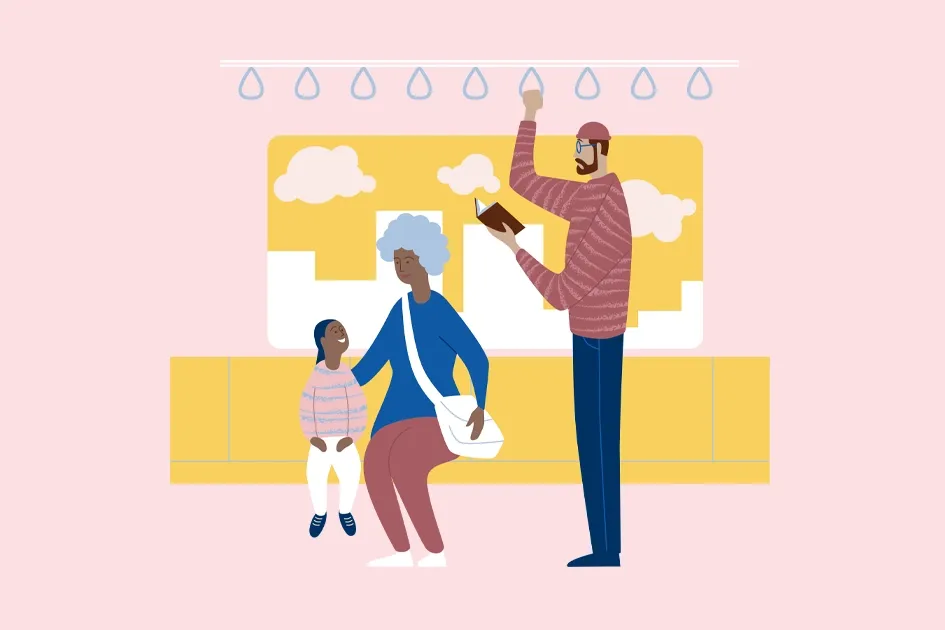When you think about the people in your life, can you honestly say that any of them are true friends—who know and love the real you? and who would do anything for you? I like to think of deep, godly friendship as molasses poured from two buckets into the same barrel, because once everything’s combined, you can’t separate it again. Although we may have many acquaintances and friends, loyal companions are rare. Yet every believer needs at least one on life’s journey.
But what does it take to develop this kind of relationship? It doesn’t happen automatically. Although you might be drawn to someone, a quality friendship must be built little by little, and that takes time. Thankfully, God has given us a wonderful example in the story of Jonathan and David.

The Building Blocks of a Lasting Relationship
Jonathan was the son of King Saul and would have been the heir to the throne of Israel. However, because of Saul’s disobedience, God proclaimed that his kingdom would not endure (1 Sam. 13:13-14). Instead, the Lord “sought out for Himself a man after His own heart” (v. 14), and that man was David (1 Sam. 16:13). As you can see, Jonathan and David were the most unlikely candidates for a close relationship. Normally, these circumstances would have bred enmity between them, but instead, a deep and lasting friendship developed.
Mutual respect. Their relationship began shortly after Jonathan witnessed David’s battle with Goliath. Although David was a lowly shepherd and Jonathan, the son of royalty, social status didn’t matter to them. They both recognized and esteemed each other as courageous warriors who defended Israel. The building block of mutual respect is essential for a long-term friendship, because without it, we’ll quickly retreat when the going gets tough. However, when we value our companions, we’ll stand with them regardless of the cost.
Faith in God. Jonathan and David also shared a steadfast faith in the Lord. You are probably familiar with David’s confidence that God would give him the victory over Goliath (1 Sam. 17:45-47), but did you know that Jonathan demonstrated this same boldness? When he decided to go up against a group of Philistines with only his armor bearer, his confidence was not in himself, but in the Lord (1 Sam. 14:6; 1 Sam. 14:12-14). Because of His faith, God gave him the victory even though he was outnumbered.
Do you have anyone in your life who shares your faith in Jesus Christ and is committed to encouraging you to believe God and grow in Christlikeness? Are you that kind of friend to someone else? We were not created to walk alone on our journey to godliness. When difficulties and suffering cloud our vision, faithful friends strengthen us with reminders to trust the Lord.
Selfless love. In lasting friendships, there is a willingness to give and receive love. The reason some people don’t have close relationships is because they don’t feel worthy of affection or are unable to be transparent with another person. After all, letting someone see the real you is risky—what if you’re rejected? Yet if we are reluctant to be vulnerable, we’ll never experience true friendship.
Jonathan was willing to open up to David. 1 Samuel 18:1 tells us his soul was “knit” together with David’s and that he “loved him as himself.” He devoted himself to that friendship as if they were family, and showed brotherly love by giving David not only his own robe and belt to wear but even his armor, sword, and bow—highly treasured possessions. In those days, swords were especially valuable because the Philistines had removed all the blacksmiths from Israel so no one could make weapons (1 Sam. 13:19-22).
What are you willing to do in order to demonstrate your love to a friend? Material gifts are good, but we also need to give in other ways, such as providing help even when it’s inconvenient, or speaking well of a friend to those who are critical.
Genuine commitment. Because so many situations cause stress in relationships, commitment is essential. Throughout Jonathan and David’s lives, their relationship was founded on covenants (1 Sam. 18:3; 1 Sam. 20:8; 1 Sam. 20:16-17; 1 Sam. 23:18) and continued to deepen. As David’s troubles with Saul escalated, Jonathan stood faithfully by his friend’s side, saying, “Whatever you say, I will do for you” (1 Sam. 20:4). He was willing to defend and protect David, even if it meant angering his father. As you think about your friends, are there any to whom you are truly devoted? Can you honestly say to these people, “Whatever you need, you can count on me”?
Humility. Our last glimpse of Jonathan and David occurred at a low point in David’s life. Having fled from Saul, he was hiding in the wilderness, fearing for his life (1 Sam. 23:15-18). Jonathan came and “encouraged him in God” (v. 16). We all need friends like this, who have the insight to relate the Lord’s faithfulness to our present struggles.
However, the most amazing aspect of Jonathan’s last encounter with David was his willingness to take second place. There was never any competition between these men, even though one was the natural heir to the throne and the other, God’s anointed future king. Jonathan’s humility enabled him to accept the Lord’s sovereign choice and give up the throne, saying, “You will be king over Israel and I will be next to you” (1 Sam. 23:17). Many friendships have ended because of pride and jealousy, but selfless humility builds up a relationship.
We’d all love to have a faithful friend like Jonathan, but we also have a responsibility to become a loyal companion to someone else. Sometimes we forget that a lasting friendship is a mutual effort. Relationships die when one person always does the giving. Although there are seasons when one person may be more on the receiving end, in a long-term relationship, there needs to be balance.
If you are longing for a true friend, ask God to make you like Jonathan. By cultivating the qualities he exemplified, you’ll develop the character traits required for building a close and lasting companionship. Then ask the Lord to bring someone into your life with whom you can bond. In time, the relationship will grow, and you can rejoice in God’s blessing of true friendship.
Adapted from the sermon “Building Lasting Friendships” by Charles F. Stanley.


